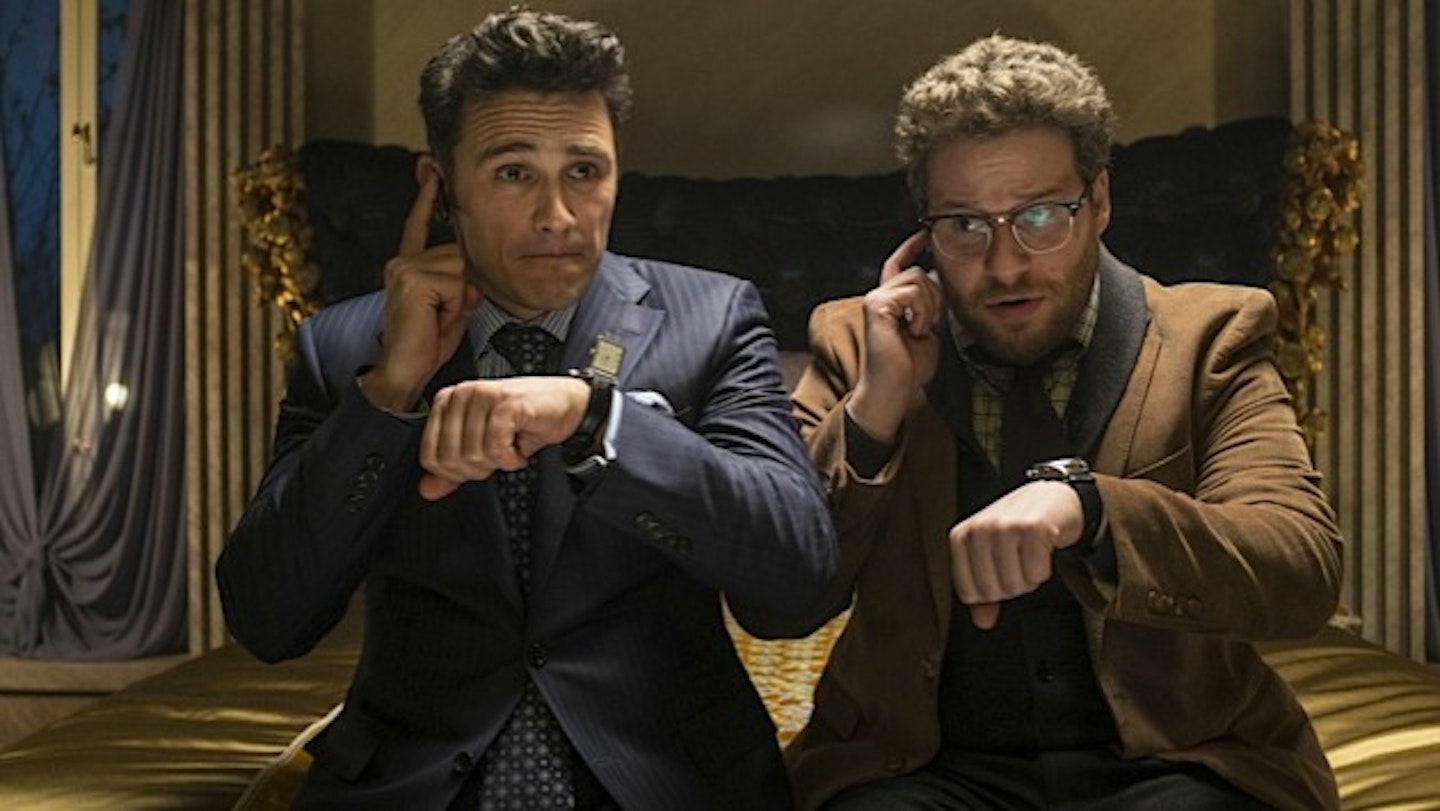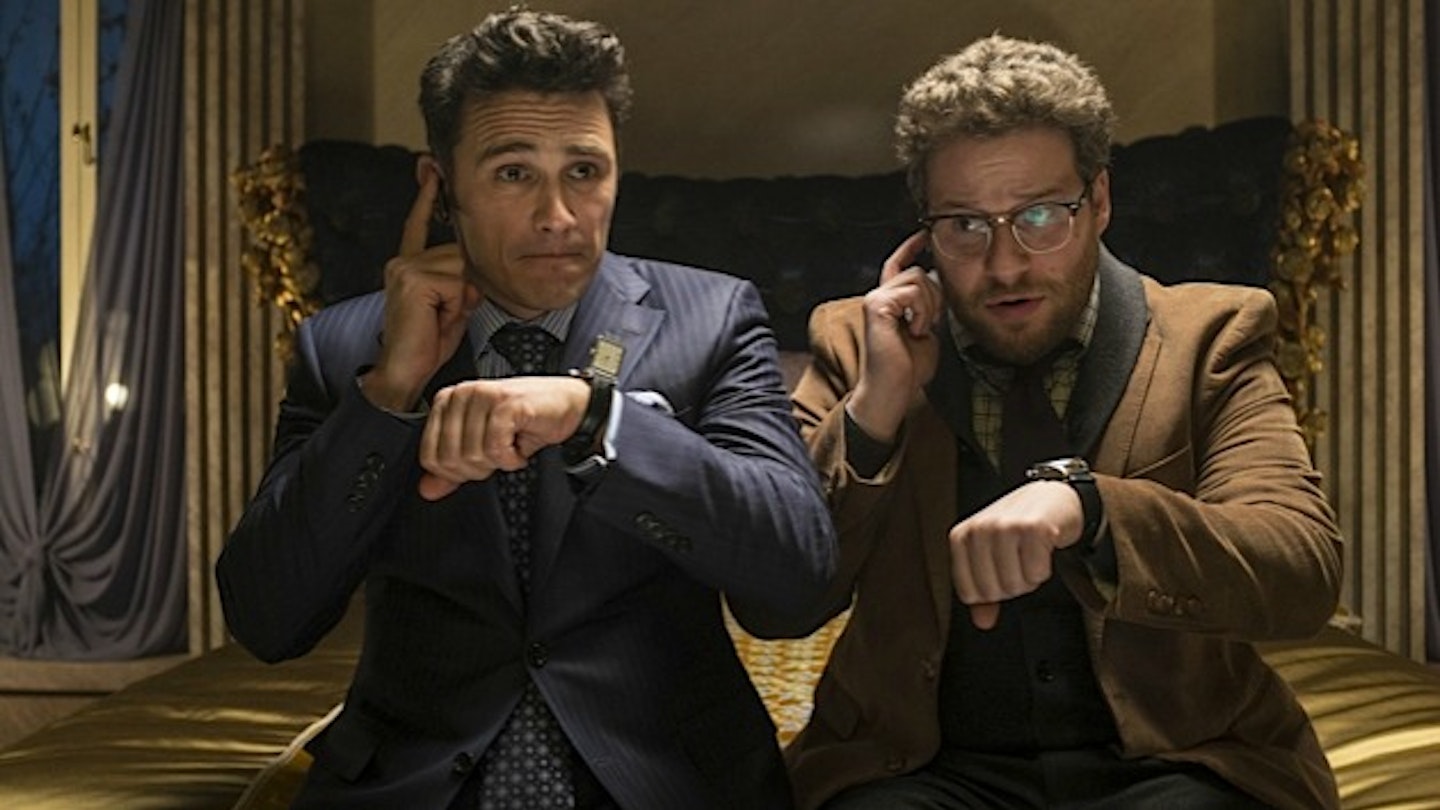Update: In a reversal of their previous decision (see below), Sony has confirmed that the controversial The Interview will be getting a limited theatrical release after all. The stoner North Korea assassination comedy will be shown on a modest 200 screens across the US from tomorrow (The Hobbit: The Battle Of The Five Armies is playing on about 3,800, if you need some context). It looks likely that the film will be released on-demand online at the same time.
The decision was welcomed by The White House, from whence a statement came saying, "[This] allows people to make their own choices about the film, and we welcome that outcome."
Seth Rogen and James Franco also voiced their enthusiasm via Twitter. Franco trumpeted, "VICTORY!!!!!!! The PEOPLE and THE PRESIDENT have spoken!!!" Rogen chimed in with, "The people have spoken! Freedom has prevailed!"

Sony Pictures in the States has, for now at least, chosen to scrap the release of Seth Rogen and Evan Goldberg's The Interview, originally planned for Christmas Day there. Still suffering the effects of the hacking attack on its servers that left private information spread across the internet and beyond, and terrorism-referencing threats surrounding the release of the North Korea-spoofing comedy, The Interview now faces an uncertain future.
The comedy, which sees James Franco and Rogen as a loud-mouthed talk show host and his producer securing an interview with North Korean leader Kim Jong-Un, only to find themselves approached by the CIA to try and assassinate the man, has been at the centre of problems for the studio. Certain scenes had been edited to make a key death scene less violent even before the hacking attack on the studio – which US federal authorities are still tracking, but is rumoured to come from North Korea itself – and there had been worries about its possible political impact.
Now, in the wake of major American cinema chains withdrawing from releasing the film amid terrorist threats by the hackers against The Interview's premieres and regular screenings, the studio has decided to halt the release.
“In light of the decision by the majority of our exhibitors not to show the film The Interview, we have decided not to move forward with the planned December 25 theatrical release," the studio said in a statement. "We respect and understand our partners’ decision and, of course, completely share their paramount interest in the safety of employees and theater-goers. Sony Pictures has been the victim of an unprecedented criminal assault against our employees, our customers, and our business. Those who attacked us stole our intellectual property, private emails, and sensitive and proprietary material, and sought to destroy our spirit and our morale – all apparently to thwart the release of a movie they did not like. We are deeply saddened at this brazen effort to suppress the distribution of a movie, and in the process do damage to our company, our employees, and the American public. We stand by our filmmakers and their right to free expression and are extremely disappointed by this outcome.”
It’s a startling move for a studio, and one that shows the wide-ranging implications of cybercrime and politics in the current era. Some have called for the studio to put the film out via video on demand services, but the company has said it has no plans to release it in any form just yet.
The Interview and its studio are not the only ones feeling the effects: 20th Century Fox and New Regency have decided to stop work on an untitled film that Gore Verbinski was developing for Steve Carell to star in with a North Korean thriller. Verbinski hit the web to talk about the decision yesterday. "Yesterday, I was told by New Regency and Fox that Fox will no longer be distributing the film. Prior to that, the film was green lit and fully funded by New Regency with Fox distributing. I have been told in no uncertain words that based on the situation at Sony, Fox has now decided to not distribute the film. Without a distributor, New Regency was forced to shut the film down. I find it ironic that fear is eliminating the possibility to tell stories that depict our ability to overcome fear."
